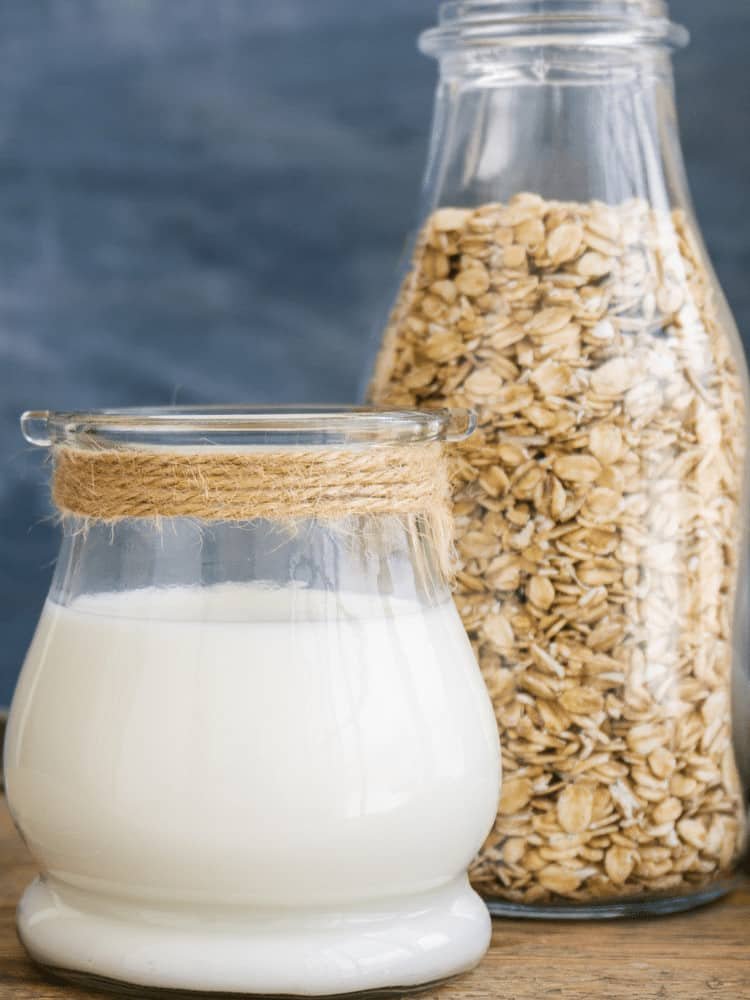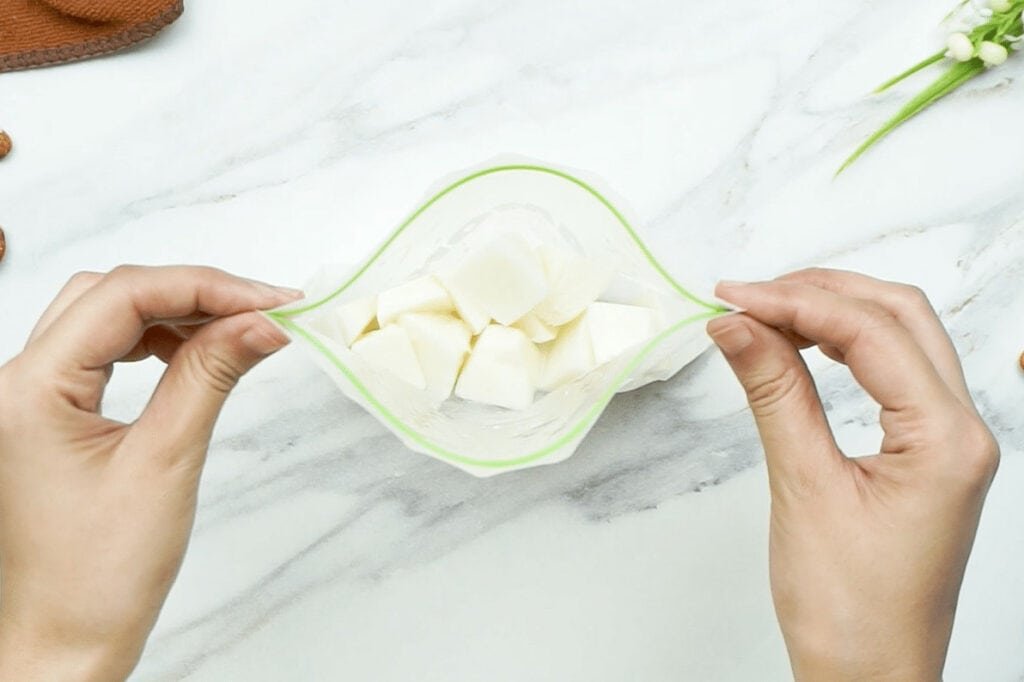Recently, plant-based milk alternatives have become hugely popular. And oat milk is one product people enjoy in coffee, smoothies, and various baking recipes. Some people make their oat milk, while others buy it. But, what’s the best long-term storage solution?

Can You Freeze Oat Milk?
Yes, you can freeze oat milk for up to 6 months. Freezing oat milk is a great way to extend its shelf life. Make sure to transfer it into an airtight container, leaving some space for expansion. Thaw it in the refrigerator before using it and shake.
How to Freeze Oat Milk
If you decide to go ahead with freezing oat milk, you’ll be pleased to hear it’s a straightforward process. If you’ve bought it in a carton from the supermarket, simply put the carton in the freezer, unopened.
I actually find that freezing oat milk into small ice cubes is the best way to freeze oat milk for my personal situation. I tend to use small portions of oat milk (in things like smoothies or in coffee) so ice cubes make perfect sense.
The method is super simple too:
- Pour
Pop the oat milk into a jug (it’s far easier this way), and then pour it into an ice cube tray. You might want to leave some room for expansion, but I tend to find it doesn’t make a huge difference.

- Freeze
Carefully pop the tray into the freezer, keeping it level, and allow the cubes to freeze solid. This should only take a few hours. - Bag
Once frozen solid, remove the cubes from the tray and pop them into a freezer bag with a resealable top. You may need to use a knife to loosen each cube a little Seal the bag up, removing as much air as possible.

- Freeze Again
Finally, return the bag to the freezer. If you’re freezing other plant-based milks (or milk) then you’ll want to include a label on this bag.

Yes, oat milk can be frozen for smoothies. It works well in smoothies as the textural changes that occur when oat milk is frozen will be hidden when blended with other ingredients.
According to Oatly UK, you can freeze Oatly safely, but you should expect some textural changes, as with any brand or homemade oat milk.
Alpro does not provide specific information on freezing their oat milk. However, generally, oat milk can be frozen, but it may affect its texture upon thawing.
How Long Can You Freeze Oat Milk?
You can freeze oat milk for around 6 months.
Shop-bought milk tends to freeze better than homemade alternatives, thanks to the preservatives included in the ingredients. But be mindful that freezing oat milk will affect its overall texture, impacting how you intend to use it.
Once opened, most oat milk lasts from 7 to 10 days in the fridge. However, always check the label for specific recommendations. For homemade oat milk, it generally lasts 3 to 5 days in the fridge.
How Do You Defrost Oat Milk?
The only way to thaw oat milk is to remove it from the freezer and place it in the fridge. This is true for both homemade and shop-bought oat milk.
It will take around 8 to 10 hours to defrost oat milk, so it’s a good idea to remove it the night before if you plan to use it for breakfast the following day. Once thawed, you should use your oat milk within 10 days.
What Happens When You Thaw Oat Milk?
Oat milk does not defrost well and tends to separate or become lumpy when exposed to freezing temperatures.
This is because oat milk contains complex carbohydrates and proteins that can undergo structural changes when frozen, leading to an undesirable texture.
This can be fixed, generally, with a vigorous shake. The other option is to limit where you use frozen oat milk. It’ll go unnoticed in a smoothie, for example.
Can You Refreeze Oat Milk?
We don’t recommend refreezing oat milk. Because of the change in texture from freezing oat milk only once, its texture and taste will deteriorate even further if you thaw and then freeze it again.
While it’s good to be concerned about wastage, you don’t want to render your oat milk undrinkable, either! So, if you opt to freeze it, do it only once.
Does Oat Milk Freeze Well?
As you can see from this article, oat milk doesn’t freeze well. The grains tend to separate, leaving you with a grainy, far from smooth texture.
While straining your oat milk is a potential solution, doing so will reduce the taste and make your oat milk a little watery.
As such, we only recommend freezing oat milk if necessary, and given that oat milk has a longer shelf life than its dairy counterparts, you should plan to use it before its given best-by date.



You have mentioned that defrosted oat milk tends to become lumpy as the grains separate.
Would it be possible to reintegrate the grains back into the liquid by using a soupifier (the attachment on a food whizzer that turns a stew with lumpy bits into a stodgy liquid without lumps)?